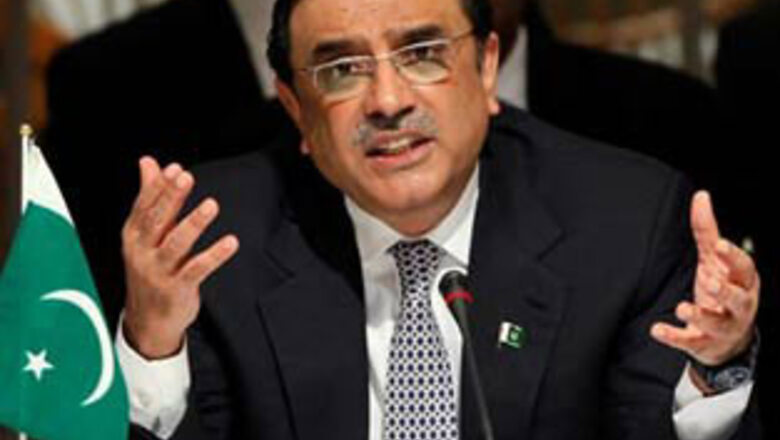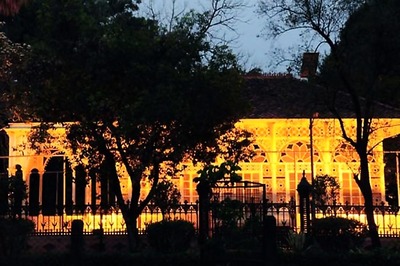
views
Islamabad: Pakistan's top court struck down an amnesty on Wednesday that had protected the President from corruption charges, paving the way for challenges to his shaky rule and causing political turbulence just as the US wants Islamabad to step up its fight against Islamist militants.
The Supreme Court ruling also leaves thousands of other officials, including Cabinet ministers loyal to President Asif Ali Zardari, facing reopened corruption and other criminal cases. That is sure to further weaken the U.S.-backed leader, who is unpopular and under pressure to give up much of his power.
"All the benefits given under the (amnesty)--cases withdrawn, acquittals made-- are declared void," Chief Justice Iftikhar Mohammed Chaudhry said in announcing the decision of the 17-member bench.
Presidential spokesman Farhatullah Babar told reporters that the government respected the court ruling but would issue a formal response after reviewing the judgment. He noted that, as president, Zardari has immunity from prosecution.
The amnesty was part of a US-brokered deal with former military ruler Pervez Musharraf that paved the way for former Prime Minister Benazir Bhutto to return home from self-exile and take part in politics without facing cases her party says were politically motivated. Zardari, Bhutto's husband, took control of the party after Bhutto was assassinated in 2007.
The amnesty, known as the National Reconciliation Ordinance, had angered some civil rights activists and ordinary Pakistanis who said it protected the wealthy elite who govern the impoverished, corruption-plagued nation from being punished for their alleged crimes.
Despite his immunity from prosecution, Zardari's opponents are now expected to challenge his eligibility for the post, arguing that if it were not for the amnesty he would not have been able to run for president. Analysts and legal experts are divided over whether this push will succeed, and the process is likely to take months.
Zardari was democratically elected and heads the largest party in parliament. Even some of his critics argue that stopping him midterm, something that would likely require a nod from the still-powerful army, would represent a set back to Pakistan's transition to democratic rule after years of military government.
Zardari, 54, has long been haunted by corruption allegations dating back to governments led by his late wife, Bhutto. He spent several years in prison under previous administrations. He denies any wrongdoing.
The amnesty had been protecting Zardari from six graft cases dating back to the late 1990s. One case alleges he misappropriated $1.5 billion. The president's office has declared the cases "unproven politically motivated allegations."
Earlier this year, Zardari gave in to street protests and reinstated Chaudhry as the chief justice after he was fired by Musharraf. Many analysts took Zardari's reluctance to restore Chaudhry as a sign he feared the judge would try to undermine him.
Ever since Zardari took over the presidency in September 2008, the opposition has demanded he give up sweeping powers he inherited from Musharraf. Pakistan's original constitution envisioned a parliamentary system in which the presidency is a ceremonial role, but the balance of power shifted under Musharraf, who took power in a 1999 military coup.
A few weeks ago, amid mounting pressure, Zardari relinquished command of the country's nuclear arsenal and said he would give up more powers soon. But that's a promise he's made before, including in a major speech to lawmakers just days after being sworn in.
The pressures on Zardari come as the U.S. needs Pakistan's aid in the fight against the Taliban more than ever now that an additional 30,000 American troops are heading next door to Afghanistan.
The US fears that unless Pakistan does more to crack down on militants on its side of the border, they will continue to find safe havens from where to plan attacks on American and NATO forces in Afghanistan.



















Comments
0 comment